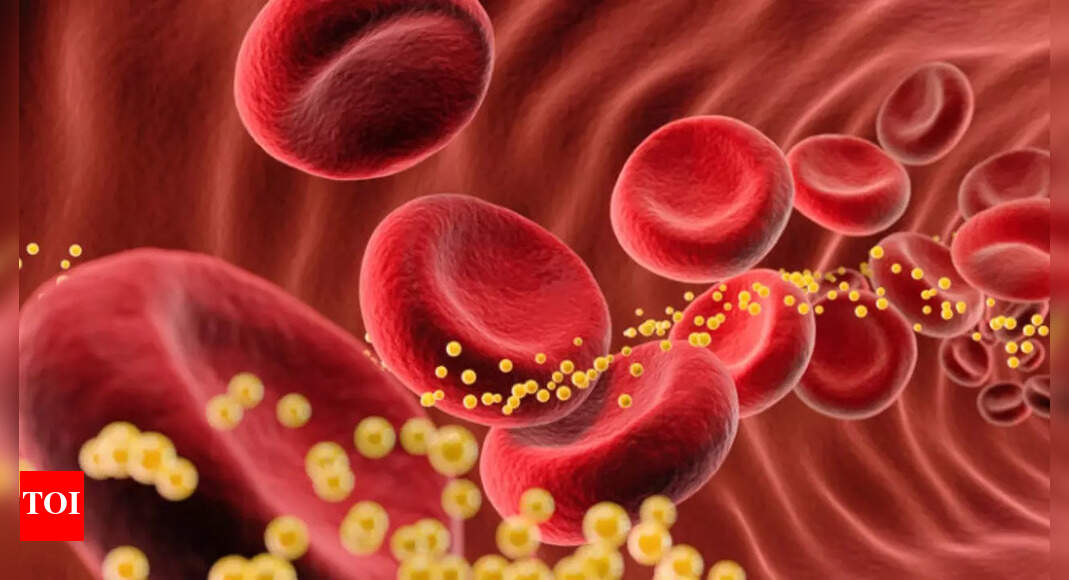Summary
Intermittent fasting may not boost metabolism without cutting calories, according to new research.
A new study from the German Institute of Human Nutrition Potsdam-Rehbruecke (DIfE) and Charit Universittsmedizin Berlin challenges common beliefs about intermittent fasting. Researchers found that…
Source: SciTechDaily

AI News Q&A (Free Content)
Q1: What are the main findings of the German Institute of Human Nutrition Potsdam-Rehbruecke's study on intermittent fasting?
A1: The study from the German Institute of Human Nutrition Potsdam-Rehbruecke found that intermittent fasting, specifically time-restricted eating, does not lead to measurable improvements in metabolic or cardiovascular parameters when calorie intake remains unchanged. However, it does cause shifts in the body's internal clocks. The study demonstrated that time-restricted eating influenced the circadian phase in blood cells and altered sleep timing, with no marked metabolic improvements observed.
Q2: How does intermittent fasting impact the body's internal clock according to recent research?
A2: Recent research indicates that intermittent fasting, particularly time-restricted eating, can shift the body's internal clocks. This was observed in a study where participants' circadian phases in blood cells were altered, and their sleep timing changed. The timing of food intake acts as a cue for biological rhythms, similar to the effect of light, and this research showed an average shift of 40 minutes in the internal clock after late time-restricted eating.
Q3: What are the potential health benefits and risks of intermittent fasting according to Wikipedia?
A3: Intermittent fasting may reduce the risk of diet-related diseases like metabolic syndrome and can improve health outcomes in overweight or obese adults. However, its effects on lowering blood pressure are less pronounced than continuous energy restriction. While preliminary evidence suggests intermittent fasting is generally safe, adverse effects have not been comprehensively studied, making it potentially risky as a dietary fad. The U.S. National Institute on Aging states that current research is inconclusive and does not recommend intermittent fasting to the general public.
Q4: What did the study on intermittent anaerobic exercise during Ramadan fasting reveal?
A4: The study on intermittent anaerobic exercise during Ramadan fasting found significant changes in haematological parameters among athletes. During fasting, there was a decrease in lymphocyte and granulocyte percentages, haematocrit, haemoglobin, and RBC count, while the percentage of intermediate cells increased. These findings suggest that fasting significantly impacts haematological parameters, which should be considered in training regimens for athletes.
Q5: What is the role of the German Institute of Human Nutrition Potsdam-Rehbruecke in diet-related disease research?
A5: The German Institute of Human Nutrition Potsdam-Rehbruecke investigates the causes of diet-related diseases to develop prevention and therapy strategies. Its research focuses on the metabolic syndrome, a combination of obesity, high blood pressure, insulin resistance, and lipid metabolism disorders, as well as the role of diet in healthy aging. The institute aims to provide dietary recommendations based on its findings.
Q6: How does intermittent fasting differ in its impact on metabolic health versus circadian rhythms?
A6: Intermittent fasting, particularly time-restricted eating, does not significantly enhance metabolic health when calorie intake is unchanged. However, it does affect circadian rhythms by altering the timing of the body's internal clocks. This distinction highlights that while metabolic benefits may not be evident, time-restricted eating can still influence biological rhythms and sleep patterns.
Q7: What are the implications of the findings from the ChronoFast study for dietary recommendations?
A7: The ChronoFast study's findings suggest that while intermittent fasting with unchanged calorie intake does not improve metabolic health, it does impact circadian rhythms. This implies that dietary recommendations focusing solely on intermittent fasting for metabolic benefits may need reconsideration. Instead, the emphasis might shift towards understanding and utilizing the effects on circadian rhythms for improving overall well-being and sleep health.





